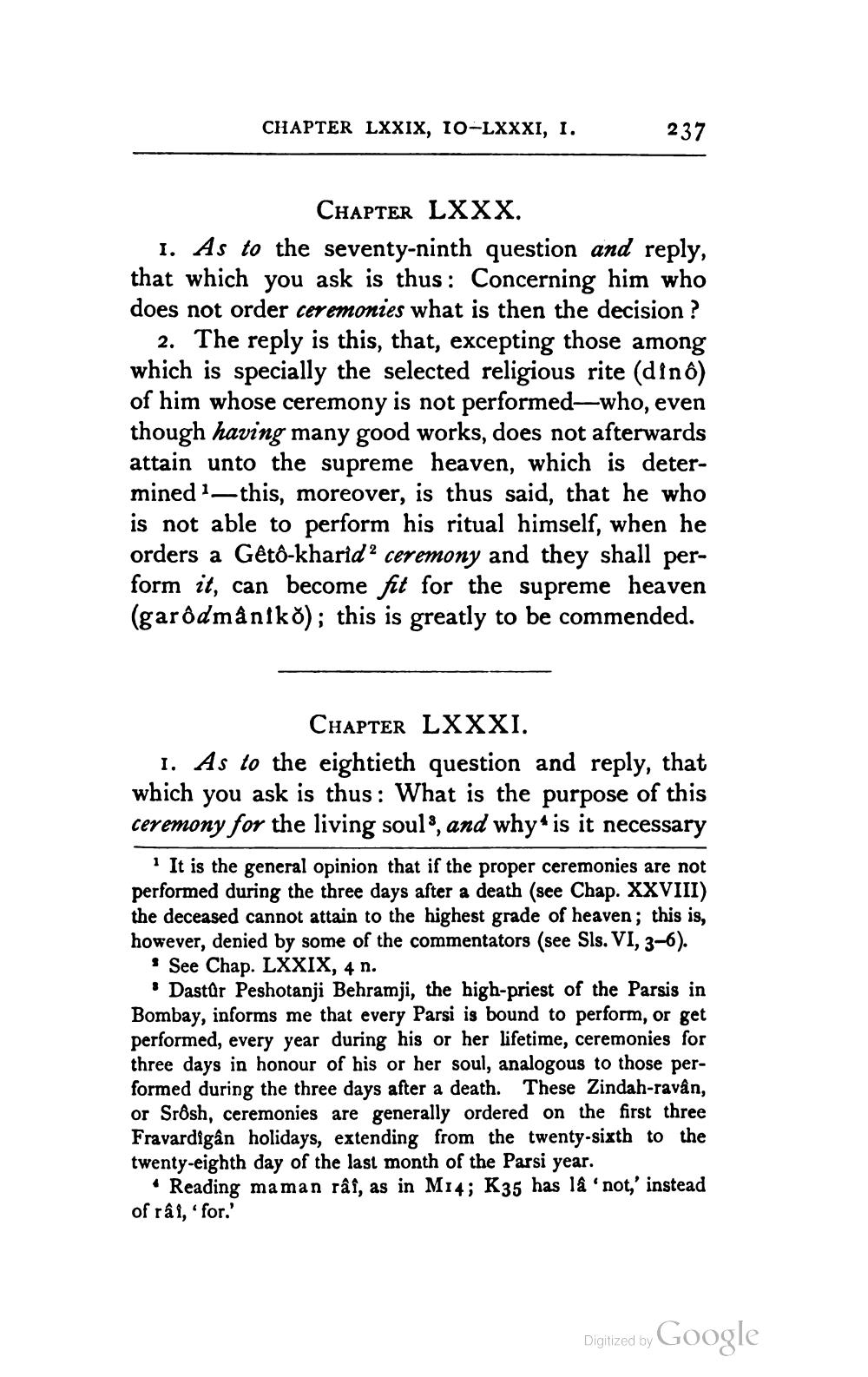________________
CHAPTER LXXIX, 10-LXXXI, 1.
237
CHAPTER LXXX. 1. As to the seventy-ninth question and reply, that which you ask is thus: Concerning him who does not order ceremonies what is then the decision?
2. The reply is this, that, excepting those among which is specially the selected religious rite (dino) of him whose ceremony is not performed—who, even though having many good works, does not afterwards attain unto the supreme heaven, which is determined 1- this, moreover, is thus said, that he who is not able to perform his ritual himself, when he orders a Gêtô-kharid? ceremony and they shall perform it, can become fit for the supreme heaven (garôdmâniko); this is greatly to be commended.
CHAPTER LXXXI. 1. As to the eightieth question and reply, that which you ask is thus: What is the purpose of this ceremony for the living souls, and why' is it necessary
It is the general opinion that if the proper ceremonies are not performed during the three days after a death (see Chap. XXVIII) the deceased cannot attain to the highest grade of heaven; this is, however, denied by some of the commentators (see Sls. VI, 3-6).
See Chap. LXXIX, 4 n. • Dastûr Peshotanji Behramji, the high-priest of the Parsis in Bombay, informs me that every Parsi is bound to perform, or get performed, every year during his or her lifetime, ceremonies for three days in honour of his or her soul, analogous to those performed during the three days after a death. These Zindah-ravan, or Srosh, ceremonies are generally ordered on the first three Fravardigan holidays, extending from the twenty-sixth to the twenty-eighth day of the last month of the Parsi year.
Reading maman râi, as in M14; K35 has lâ'not,' instead of râi, for.'
Digitized by Google




